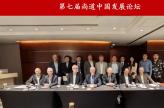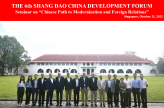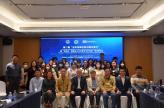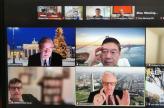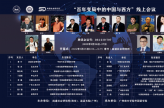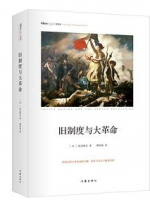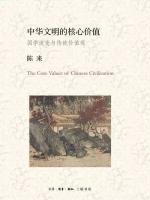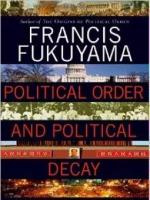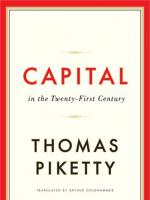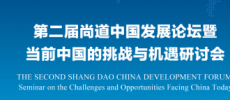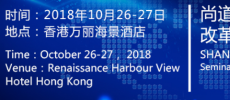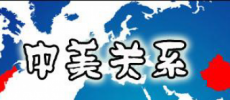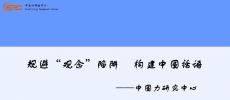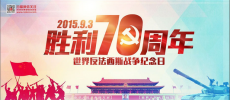《世界邮报》:战胜知识精英的资本集团能领导美国吗?
更新时间:2017-01-29 15:48:57 | 来源: 世界邮报
Trump’s Victory Is The Triumph Of Business Elites Over Intellectual Elites
Director, Shangdao Institute for Social Research
, Research Fellow, Shangdao Institute for Social Research
http://www.huffingtonpost.com/entry/trump-business-elites_us_588623abe4b0e3a7356a4e83
NANJING, China——During the 2016 U.S. election, elites with diverse political stances from the financial, intellectual, media and political worlds rallied around Hillary Clinton and formed an anti-Donald Trump alliance. But Trump defeated Clinton’s elite alliance with the power of the public. This split between the elite and the people is unprecedented.
Mainstream opinions in both the U.S. and China have shared the viewpoint that Trump’s election is a populist shock to American elite politics. But this is too simplistic. Instead, we are witnessing a split within American elite groups ― the traditional political and intellectual elites were defeated by capital and business elites. The tradition of meritocracy in the West, which has held over a period of centuries, has been subverted.
In the history of the West, there is a long-standing tradition of intellect and meritocracy in politics. In ancient Greece, Socrates once proposed that since shoes are made by shoemakers, countries should also be governed by leaders with wisdom. Plato elaborated in his masterpiece “The Republic,” arguing that in an ideal state, either a philosopher becomes the king or the king becomes a philosopher.
The idea of meritocracy in ancient Greece has been passed down to the modern era. In the Middle Ages, the clerical authority who was in charge of classical knowledge not only controlled the authority of the spiritual domain but also enjoyed a higher political rank over the feudal aristocracy. Enlightenment intellectuals overthrew the clergy’s authority and blazed a trail for the development of a market economy and secular society. Those intellectuals, particularly humanities intellectuals, inherited and developed the clergy’s tradition of spiritual leadership. Especially during the Industrial Revolution, intellectuals reestablished their status of spiritual leadership and profoundly shaped modern Western politics by criticizing various social problems.
The tradition of meritocracy in the West, which has held over a period of centuries, has been subverted.
Intellectual authorities, such as economists and historians, criticize the negative consequences of the market economy and promote human rights and environmental protection. They suggest applying necessary legislative policies that reduce divisions and promote social justice. It is intellectual elites, not capital elites, who have traditionally governed in this way.
In a broad sense, intellectual elites and capital elites have been collaborating with one another. But divisions remain. Capital elites in Western countries can exert great influence on politics but intellectual elites never stop criticizing them. To some extent, intellectual elites act based on Socrates’s belief that rampant desire is harmful and that only intellectuals ― the representatives of “knowledge” ― can achieve justice. Intellectual elites think they are obliged to play the role of the night watchmen of society.
A kind of balance has been maintained between intellectual and capital elites in contemporary American society. Although capital elites have great political influence, they traditionally could not control government in a direct manner, so they entrusted intellectual elites to govern. After entering government, intellectual elites needed to cooperate with capital elites to facilitate the implementation of policies.
Trump has been selecting capital elites for his cabinet and pushing out intellectual elites.
However, Trump’s election breaks this balance between the intellectual elites and the capital elites. Taking advantage of ordinary citizens’ dissatisfaction, Trump defeated the establishment in the Democratic and the Republican parties. Since the election, Trump has been selecting capital elites for his cabinet and has begun pushing out intellectual elites who had close relations with the established parties. This has further divided capital elites from intellectual elites, including those in the media.
Thus, Trump’s election represents a double division: between the public and elites, and between intellectual elites and capital elites. Intellectual elites’ influence will sink in the years to come, and they may withdraw to university campuses and criticize capital’s monopoly on social resources from there.
This significant change is not only a reaction against the U.S. political trend since the 20th century but also a negation of the concept of meritocracy in the West over the past few centuries. Can Trump’s capital group effectively govern a great global power like the U.S.? This question will be the world’s concern for the next few years.



